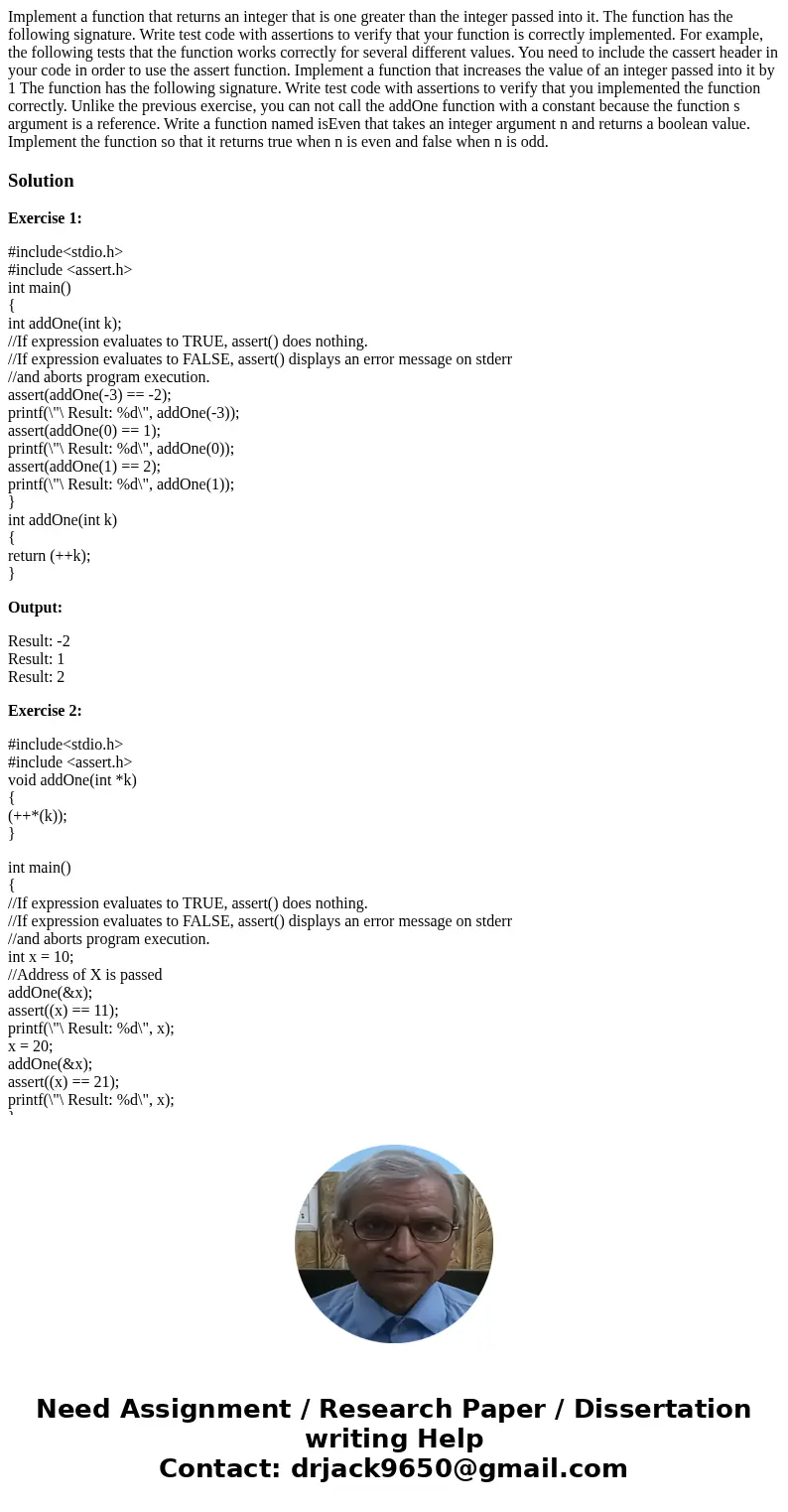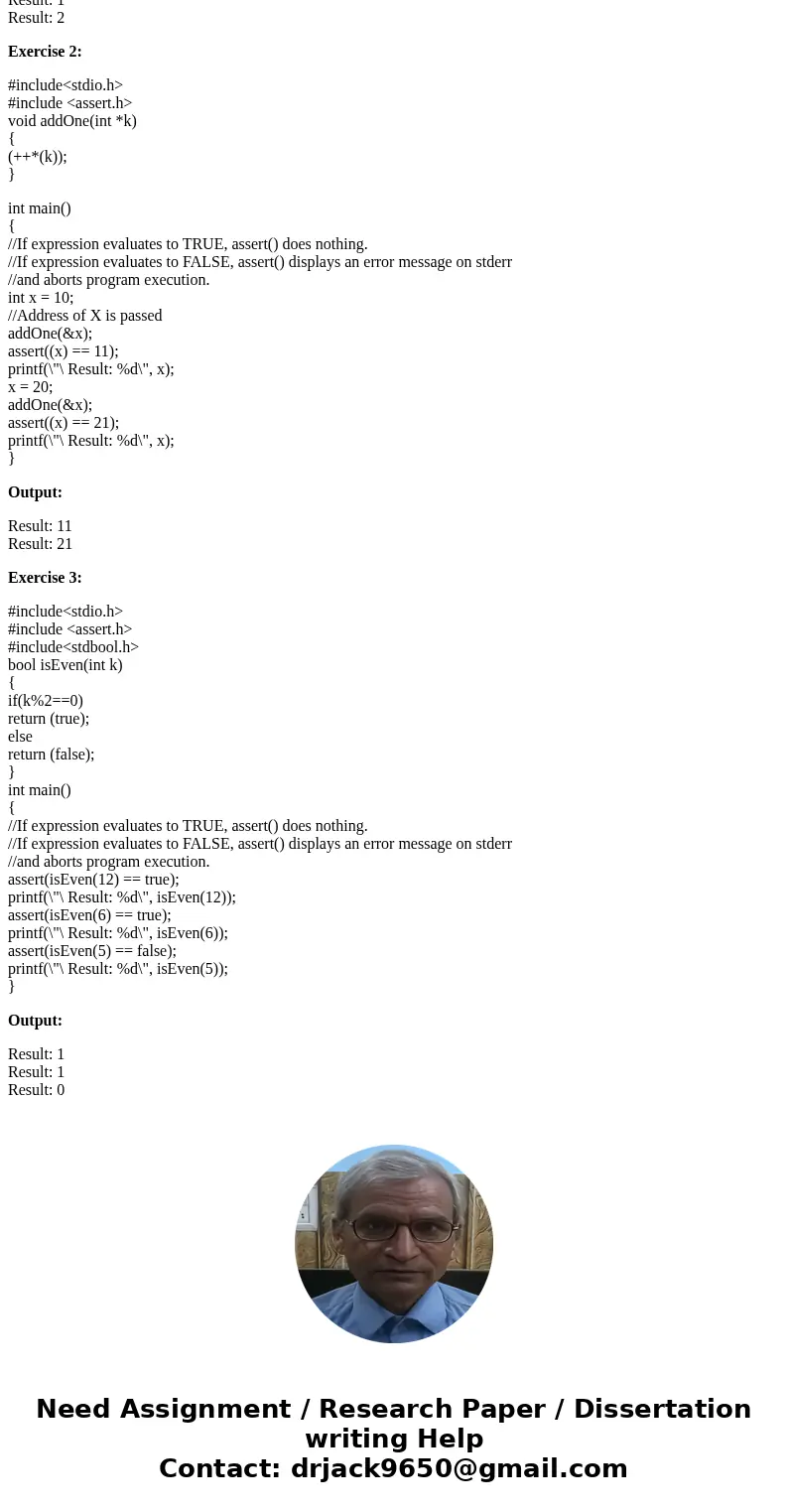Implement a function that returns an integer that is one gre
Solution
Exercise 1:
#include<stdio.h>
#include <assert.h>
int main()
{
int addOne(int k);
//If expression evaluates to TRUE, assert() does nothing.
//If expression evaluates to FALSE, assert() displays an error message on stderr
//and aborts program execution.
assert(addOne(-3) == -2);
printf(\"\ Result: %d\", addOne(-3));
assert(addOne(0) == 1);
printf(\"\ Result: %d\", addOne(0));
assert(addOne(1) == 2);
printf(\"\ Result: %d\", addOne(1));
}
int addOne(int k)
{
return (++k);
}
Output:
Result: -2
Result: 1
Result: 2
Exercise 2:
#include<stdio.h>
#include <assert.h>
void addOne(int *k)
{
(++*(k));
}
int main()
{
//If expression evaluates to TRUE, assert() does nothing.
//If expression evaluates to FALSE, assert() displays an error message on stderr
//and aborts program execution.
int x = 10;
//Address of X is passed
addOne(&x);
assert((x) == 11);
printf(\"\ Result: %d\", x);
x = 20;
addOne(&x);
assert((x) == 21);
printf(\"\ Result: %d\", x);
}
Output:
Result: 11
Result: 21
Exercise 3:
#include<stdio.h>
#include <assert.h>
#include<stdbool.h>
bool isEven(int k)
{
if(k%2==0)
return (true);
else
return (false);
}
int main()
{
//If expression evaluates to TRUE, assert() does nothing.
//If expression evaluates to FALSE, assert() displays an error message on stderr
//and aborts program execution.
assert(isEven(12) == true);
printf(\"\ Result: %d\", isEven(12));
assert(isEven(6) == true);
printf(\"\ Result: %d\", isEven(6));
assert(isEven(5) == false);
printf(\"\ Result: %d\", isEven(5));
}
Output:
Result: 1
Result: 1
Result: 0


 Homework Sourse
Homework Sourse